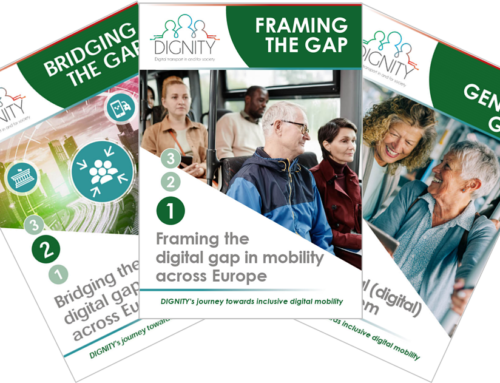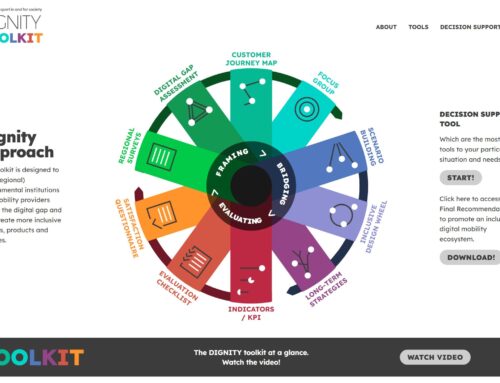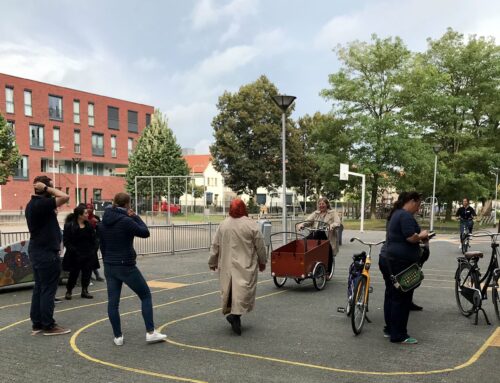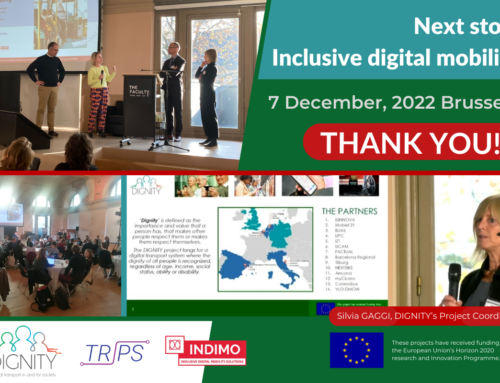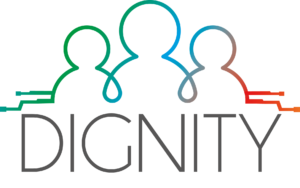DIGNITY’s goal is to propose a digitally inclusive travel system that addresses the needs of all citizens.
To get there, one of the fundamental elements is supporting policy makers in formulating long-term strategies that promote innovation in transport.
The role of foresight
In order to make suggestions for a new future, DIGNITY will explore a range of potential scenario options in its pilot cities using the foresight method. Foresight is the study of possible, probable and preferable alternative futures.
DIGNITY will build a series of scenarios within its foresight exercise, taking into account the full range of factors that might lead to disparities in the uptake of digitalised mobility products and services by different user groups, vulnerable users in particular.
This method will enable DIGNITY to address the complex challenges around the creation of an inclusive mobility system in a structured way. Supporting the creation of long-term policy plans in the pilot cities, the DIGNITY approach enables local governments – in collaboration with different stakeholders – to work together to look ahead to a truly inclusive, shared future.
The five phases of scenario building
DIGNITY’s scenario planning process is divided into five phases: scoping, exploration, construction, development, and implementation. At what stage is the work in DIGNITY’s pilot cities?
SCOPING. In February and March 2021, DIGNITY will conduct its first two training workshops on scenario building with the pilot cities – Ancona, Barcelona, Flanders and Tilburg. This is where we share our goals for an inclusive mobility system, identify and define common challenges to overcome in getting there, and detail the key planning elements.
EXPLORATION. Between March and June 2021, the local scenario teams will organise workshops with their area stakeholders to identify their regional challenges. They will stipulate the factors influencing the challenges in their local contexts and assesses the impact of each one on the process of building an inclusive mobility ecosystem.
CONSTRUCTION. This part of the process, which will also occur in the workshops between March and June 2021, involves defining and clustering the driving forces behind inclusive mobility, and making projections that help form consistent storylines.
DEVELOPMENT. Here, the pilots will design their own scenarios. This will also take place in the workshops between March and June 2021.
IMPLEMENTATION. In this last phase, the local authorities discuss the scenarios and transfer knowledge, and develop policy plans to foster their envisaged mobility system. This will also take place in the workshops between March and June 2021.
The road to a better shared future
The DIGNITY pilot cities will use the scenario process to evaluate their existing plans in the renewed context of recent trends and expected future conditions. This process will generate a sense of ownership for common challenges and create a legitimate basis for recommendations on policy actions to concretely create inclusive mobility solutions and help bridge the digital gap.
Through a truly participatory methodology, this forward-looking exercise will drive the formulation of a robust policy framework for the benefit of current and future generations, ensuring that social inclusion concerns are systematically embedded in transport policies and strategies.


